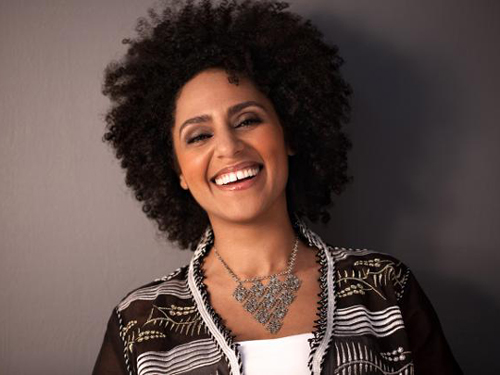 Malika was born in Southern Morocco, in a little village called Ouled Teima. Her father's family was originally from Tata, a city on the Sahara plain, while her mother was a Berber from the High Atlas. During her early childhood, there was always music and dancing in the house. After her family emigrated to a suburb of Paris, she found herself straddling two very different societies. I had to be French at school yet retain my Moroccan cultural heritage at home, she recalls, Like many immigrant children, I learned to switch quickly between the two. It was hard but brought me a lot of good things too.
Malika was born in Southern Morocco, in a little village called Ouled Teima. Her father's family was originally from Tata, a city on the Sahara plain, while her mother was a Berber from the High Atlas. During her early childhood, there was always music and dancing in the house. After her family emigrated to a suburb of Paris, she found herself straddling two very different societies. I had to be French at school yet retain my Moroccan cultural heritage at home, she recalls, Like many immigrant children, I learned to switch quickly between the two. It was hard but brought me a lot of good things too.
Malika's interest in music led her to take up the clarinet in grade school. Meanwhile, she was being exposed to a wide variety of musical styles, she cites fellow Moroccan Hajja Hamdaouia, Rais Mohand, the Lebanese-born, Egyptian-based ud virtuoso/composer Farid el Atrache, Um Kalthoum and Algerian singer Warda (Al-Jazairia) as major influences. She also absorbed albums by Ella Fitzgerald, Bobby McFerrin, Thelonious Monk, Stevie Wonder and Aretha Franklin. When I decided to learn singing, I started with jazz because I was attracted by the improvisation, which is also important in Arabic music, she says. Although her family was not in favor of her pursuing a musical career, Malika nonetheless attended classes at conservatories and jazz academies at Tours and Marseille and studied privately with Sarah Lazarus and Francoise Galais.
|

